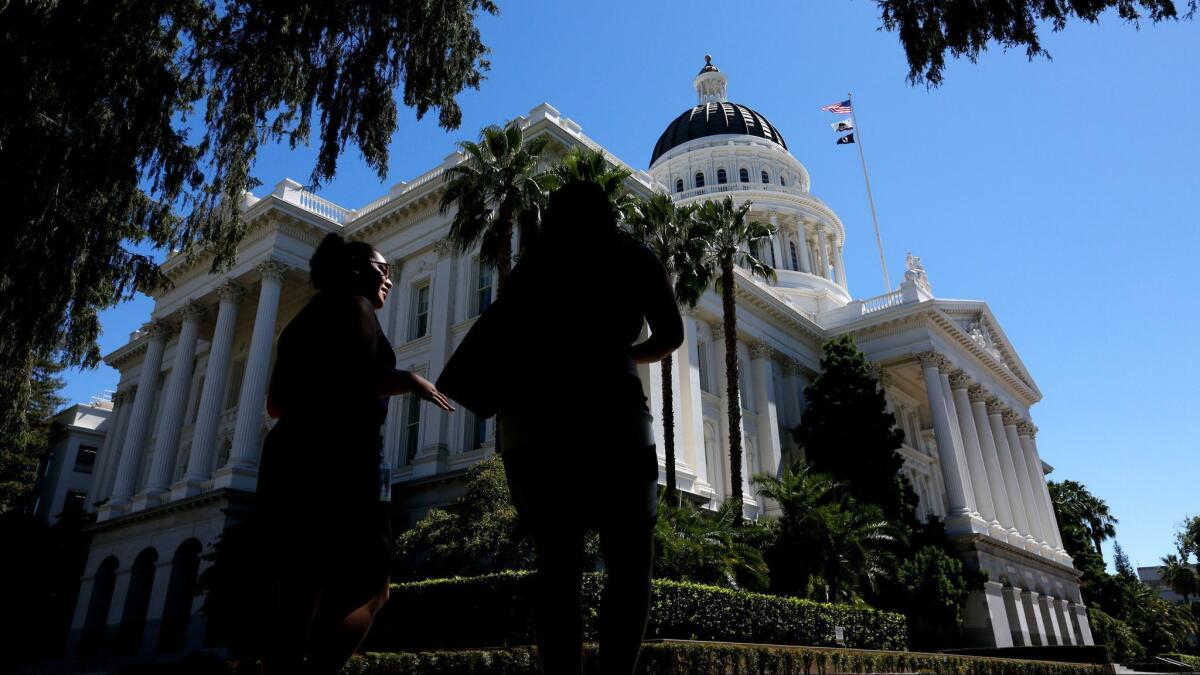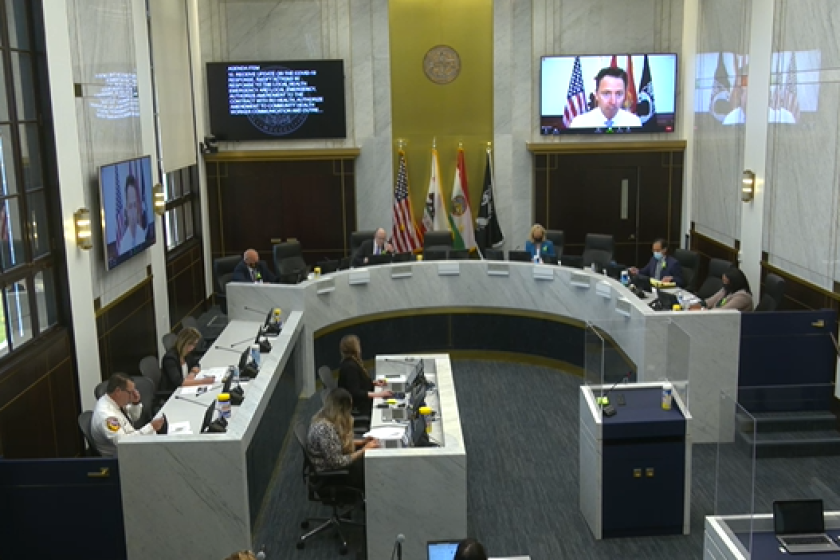Editorial: California lawmakers must let the public participate by phone

A silver lining of the COVID-19 pandemic has been the way it’s forced many government agencies to become more accessible to the public. As school boards and city councils moved their meetings out of board rooms and onto Zoom, some people who’d been unable to attend in person found they could easily connect and comment by phone or computer.
The use of technology has been an especially important change at the state Capitol, where, for decades, Californians could only participate in hearings if they could get to Sacramento — or pay a lobbyist to be there for them. The barriers to public participation — the cost of travel, time away from school or work — were enormous, with most of the state’s population hundreds of miles away in Southern California.
In 2020, though, COVID-19 pushed the Legislature to move into the 21st century. Or at least, the 20th century. Lawmakers began using a conference-calling system for people to phone in during public comment. Sure, that’s meant dealing with background noise and glitchy connections from some callers. Some people have had their lines cut off when they ramble too long. Poor audio quality has made it difficult for lawmakers to hear some phone testimony.
But fundamentally, the addition of the call-in system is an improvement — providing a safe and economical way for Californians to exercise their 1st Amendment right to petition their government.
The pandemic forced government bodies to open meetings to electronic remote access, allowing the public to participate from home. That’s a good thing, and a new bill would require it to keep going after the emergency is over.
So it’s frustrating that Assembly Speaker Anthony Rendon is allowing some committees to scrap the phone option for public comment. The Assembly Appropriations Committee — a powerful panel that votes on the most consequential legislation — is scheduled to meet Thursday and likely will not provide phone access. The Assembly Education Committee heard 10 bills last week without taking any comments by phone. Most other Assembly committees are taking public comment by phone, but Rendon has delegated the decision to each committee chair, rather than requiring it.
Contrast that with the state Senate, where all committees have consistently provided a call-in option since the pandemic began.
Rendon’s spokesperson Katie Talbot said that even with the inconsistent phone option, the Assembly now “offers more options to provide public input than ever.” People can submit letters, she said in an email, or participate in person in hearing rooms that require social distancing or outdoors at a “remote testimony station.” One such station — essentially a video camera and a microphone that connect live to the hearing room — is set up on the steps outside the Capitol. Similar stations can be set up in different parts of the state at a lawmaker’s request.
That’s great, but none of those options are as easy as picking up the phone.
The state Legislature is trying to preserve virtual options that opened participation to more people
The conference call was cutting-edge when it debuted at the Pan-Pacific International Expo in San Francisco in 1915. More than a century and a deadly pandemic later, the Legislature still isn’t consistently making use of the technology to serve the public. That’s not just antiquated — it’s hypocritical.
Lawmakers obviously know how important it is for the public to be able to participate remotely in government meetings — otherwise they would not have passed Assembly Bill 339 last year. The bill would have required that city councils and boards of supervisors in places with more than 250,000 residents provide both in-person and teleconference options for public meetings. Gov. Gavin Newsom vetoed it, saying he didn’t like the approach of “tying public access requirements to the population of jurisdictions.”
Unfortunately, lawmakers did with this bill what they do too often — exclude themselves. If they take another stab at it this year, they must go further and make the same kind of remote access for the public apply to legislative hearings as well.
In the meantime, the Assembly should provide a phone option for all hearings and improve the audio quality so the public can have a say and lawmakers can hear them.
More to Read
A cure for the common opinion
Get thought-provoking perspectives with our weekly newsletter.
You may occasionally receive promotional content from the Los Angeles Times.











